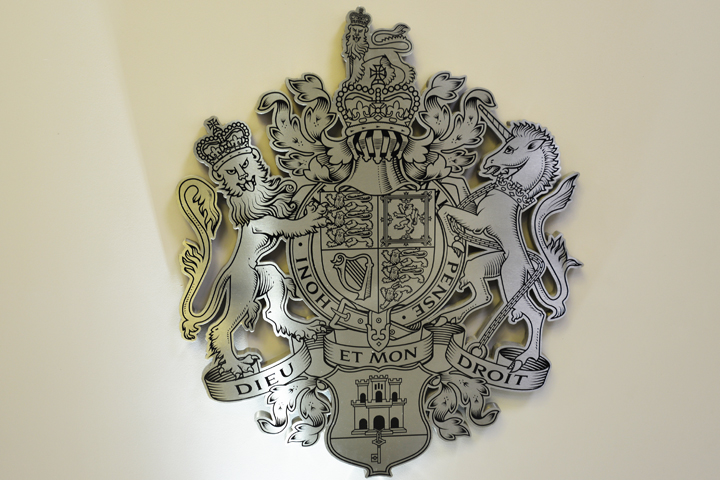Dec 20 - European Commission Accepts Gibraltar’s Arguments On Tax
 On the 1st June 2012, the Spanish Government filed a complaint with the European Commission claiming that the Income Tax Act 2010 (the “ITA 2010”) as whole constituted unlawful State aid.
On the 1st June 2012, the Spanish Government filed a complaint with the European Commission claiming that the Income Tax Act 2010 (the “ITA 2010”) as whole constituted unlawful State aid.
In particular, the Spanish Government considered that the aim of the ITA 2010 was to maintain the offshore tax regime that the Gibraltar Government had put an end to when it abolished the legislation on exempt and qualifying companies.
A spokesperson said: "After examining the numerous allegations made by Spain and hearing extensive submissions from the Gibraltar Government, on 16 October 2013 the Commission opened a formal investigation. However, it did so only in relation to two discreet aspects of the ITA 2010, namely, a tax exemption given to certain interest and royalty income. The Commission’s concerns with respect to these two matters were addressed, on a without prejudice basis, by the Gibraltar Government through amendments made to the ITA 2010 back in July 2013 (interest) and in January 2014 (royalty income).
"In parallel to the above, the European Commission also asked questions on the practice of tax rulings by the Income Tax Office in Gibraltar. In the Gibraltar Government’s view, the Commission’s questions were mistakenly influenced by the enquiries it was making into certain tax rulings given in other European tax jurisdictions in wholly different cases concerning individual companies such as Starbucks, Apple and Microsoft and the Commission’s subsequent policy to investigate the practice of tax rulings throughout the whole EU.
"Notwithstanding Gibraltar’s submissions, on 1 October 2014, the Commission decided to extend its investigation to the practice of tax rulings by the Income Tax Office. This decision was taken by the Spanish Commissioner Almunia, who at that time was responsible for state aids, whilst discussions regarding a large number of tax rulings were still on-going. Mr Almunia had, in other cases, been suspected of national partiality. He took the decision in haste just a few weeks before the end of his term as Competition Commissioner. The decision contained a number of palpable errors. It triggered a series of events, including direct communications between the Chief Minister and the new President of the European Commission and Competition Commissioner.
"These errors were, to a large extent, acknowledged by the Commission, which explains why the decision opening an investigation into the practice of tax rulings in Gibraltar was not published until 7 October 2016, that is, over two years after it had been taken.
"It was immediately challenged by the Gibraltar Government before the General Court of the European Union. That case is currently pending. At the same time as bringing the legal challenge, the Gibraltar Government remained fully engaged with the Commission in its investigation of the tax rulings practice in Gibraltar. During that time extensive exchanges have taken place and numerous meetings have been attended to by the Gibraltar team in Brussels. In that process, we have been able to persuade the Commission that there was no systematic problem with the practice of tax rulings in Gibraltar, as the Commission thought there was, and that in its tax rulings the Income Tax Office simply provided an expression of the law applicable to a particular case and based on the facts submitted to it.
"It is vitally important to bear in mind that in today’s decision, the Commission has accepted Gibraltar’s arguments that the tax ruling practice, as a whole, under the ITA 2010 does not constitute State aid.
"In the discussions with the Commission, the Gibraltar Government agreed to introduce legislation regulating the practice on tax rulings in order to place it on a more solid legislative footing as well as Guidance Notes including on the interpretation of the territorial principle of taxation. These were published by the Gibraltar Government in October 2018.
"The Government’s approach is fully vindicated in today’s decision, which allows us to continue with the practice of tax rulings. Furthermore, of the 165 tax rulings that the Commission has been investigating it has found errors only in relation to 5 of them, all of which concern transactions involving Dutch limited partnerships which have also been controversial in other EU jurisdictions. None of the 5 in Gibraltar present any serious problems or issues."
Chief Minister Fabian Picardo said: “I am absolutely delighted by today’s decision. Although it is a negative decision, its effect is minor whilst at the same time it vindicates our view that there is nothing fundamentally unlawful or wrong with our Income Tax Act 2010. Indeed, considering that the entirety of the Act was under examination by the European Commission, the result of the investigation, which in total has taken over 6 years, is a remarkable success for Gibraltar and a massive blow for all those who seek to denigrate Gibraltar as a tax jurisdiction. The entire investigation has required us to only make minor amendments to the Act on interest and royalties and to place on a more solid legal footing the practice of tax rulings in Gibraltar. The net result of this investigation is that the Income Tax Act now enjoys a full clean bill of health from the Commission. This is great, great news indeed. I will be studying further the dense decision with my legal team and shall make any further announcements that may emerge from that analysis”.
{fcomment}






